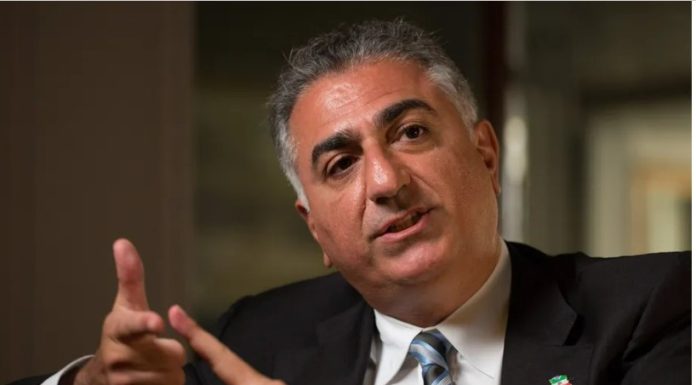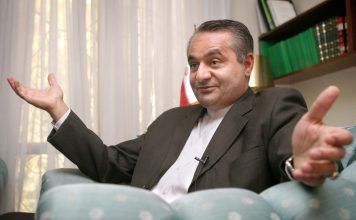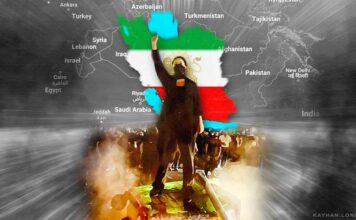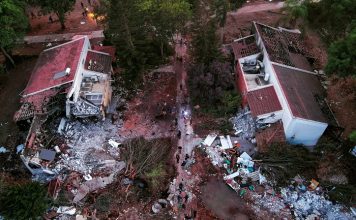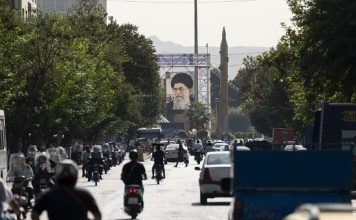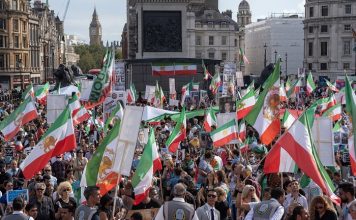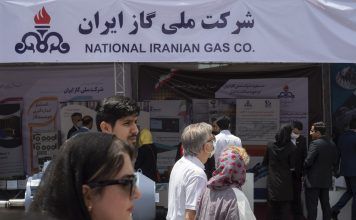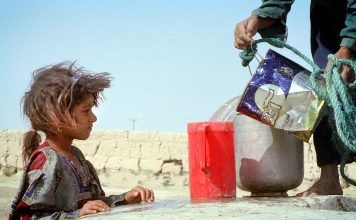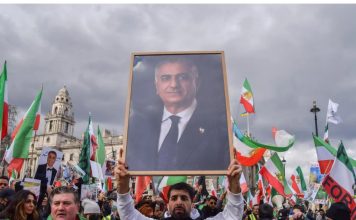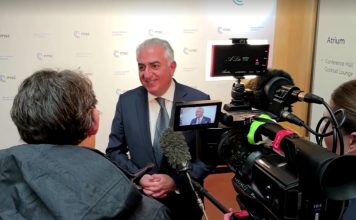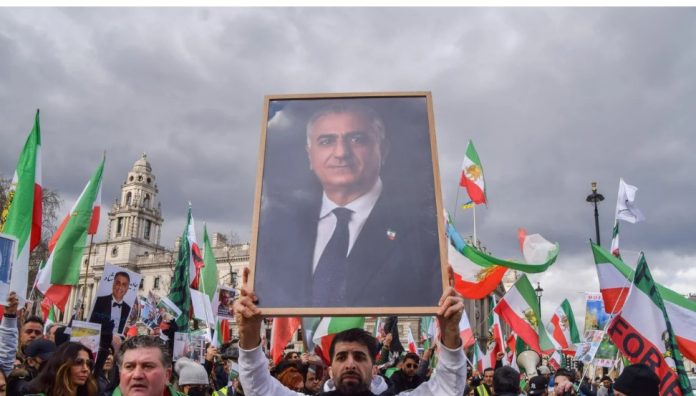
[aesop_content color=”#ffffff” background=”#333333″ columns=”1″ position=”none” imgrepeat=”no-repeat” disable_bgshading=”off” floaterposition=”left” floaterdirection=”up” revealfx=”off” overlay_revealfx=”off” aesop-generator-content=”All Rights Reserved@WorldCruch in Partnership with Kayhan.London.
“]All Rights Reserved@WorldCruch in Partnership with Kayhan.London.[/aesop_content]
-OpEd-
By F. Haqiqatjou – As a sociologist, I have one thing in common with Iran’s former crown prince and exiled heir apparent, Reza Pahlavi. We both support a republic in Iran, while understanding the utility in present conditions, of restoring the constitutional regime that ended with the 1979 Iranian Revolution that overthrew the monarchy and installed a theocratic regime.
It’s an inexplicable contradiction though in my case, it’s merely a personal conundrum. Not so with the prince: for he must bear a burden of responsibilities born of the hopes and expectations of numerous Iranians, especially those inside Iran who have been protesting against the ayatollahs — and often chanting support for the Pahlavis — at great personal risk to themselves.
Every time he speaks in the media or responds to calls to become the nation’s representative, he prompts criticisms, indignation and controversy. Opponents of the monarchy are worried that anything enhancing the prince’s public profile will also strengthen the prospects of a restoration. They want him to formally renounce his succession rights and distance himself from the monarchy he would, in other conditions, have inherited from his father, Shah Mohammad Reza Pahlavi.
The prince seems to be doing this distancing, stating his support for a republic with increasing clarity, and even renouncing use of the title of prince.
He recently told the BBC on the sidelines of the Munich Security Conference that he personally favored a republic in Iran, for its meritocratic nature. As he sees debates around a monarchy or republic as a source of discord among all those who want a democracy in Iran, he has sought to proceed in public as a civil and political activist, alongside other exiled opponents. This of course has prompted the ire of royalists, who do not see such postures as impartial or fair.
I personally believe the prince’s bid to work as a “simple” activist, at this juncture, is neither practical nor beneficial to Iran’s mass opposition movement.
We might rather consider his potential role and utility to a democratic transition in Iran as “crown prince.”
The silent majority
Presently the opponents of the Islamic Republic have no clear leadership structure, in part for their widely divergent interpretations of the past and views on what should come next. They are working on drafting a common charter or document acceptable to all groups, but I think that uniting the opposition needs more than a charter.
In a transitional period, an alternative polity to the present regime must be found.
Power relations do not necessarily emerge on the basis of rational premises or arguments. Many if not most Iranians want a freely elected regime that respects civil rights and quite possibly secularism. In a transitional period, an alternative polity to the present regime must be found that could win immediate public confidence, and assure socio-economic security later on.
Some of the issues we must address at present include: 1. Meeting the needs of the “silent” majority, 2. Keeping Iran’s protesting and revolutionary population motivated, 3. Preventing the dispersion of opposition forces and 4. Encouraging and aiding desertions among regime forces.
The reasons why a “silent” mass of Iranians is not participating in protests are firstly its concerns over anarchy (and especially separatism) in a transition period, and the idea that, as happened in 1979, something far worse may follow the rotten status quo.
[aesop_image img=”https://kayhanlife.com/wp-content/uploads/2023/03/Screenshot-2023-03-02-164436.jpg” panorama=”off” credit=”Shah Mohammad Reza Pahlavi and his wife Farah Pahlavi with their four children in 1973.” align=”center” lightbox=”on” captionsrc=”custom” captionposition=”left” revealfx=”off” overlay_revealfx=”off”]
Need for a narrative
When it comes to the zeal needed to topple the regime, it is already a tall order to expect Iranians to keep fighting amid the restrictions and threats of torture and death. But they will also need an inspiring narrative for which to risk their lives.
The regime has worked to give its side its own “inspiring narrative” meant to boost their morale, consisting of propaganda, charges and in cases outright lies. The forces of oppression are already in the grip of fear, knowing that a failure or refusal to do their duty may have painful consequences. But the regime is also giving them legitimizing reasons to batter their compatriots (for who could be relied on to work as an agent of arbitrary oppression?).
This has led state agents to deny shooting at protesters in previous months (or the foreign minister recently insisting the regime hadn’t killed anyone!). Propaganda has meanwhile termed thousands of protesters as rioters and terrorists, and blamed three months of mass protests on foreign machinations.
Such propaganda is dismal, but notably emotive. Iran’s opposition needs its own emotive narrative, meant to speak to the hearts of millions inside Iran.
Perhaps monarchists are the only opposition group that can be said to have this narrative, or a big idea that can move the population in Iran. For millions of Iranians, the monarchs of their history form a continuity: from the Persians and the Medes to Mohammadreza Pahlavi, they are an unbroken chain within the collective memory. The prince can use this shared consciousness to link opposition and mass society.
Reversing Iran’s degradation
Contrary to the claims of opponents, his presence as head of a constitutional movement is not bound to divide the opposition, and for sure, he has done nothing to unite it by remarking several times that he prefers a republic! Once he decides to speak in favor of a constitutional monarchy, he could overrule some of the more radical or divisive remarks made by royalists. A vigorous constitutionalist front might even draw republicans toward a strengthened opposition.
It is not far-fetched. It happened in Spain in the 1970s, when communists and socialists joined a transition to democracy headed by King Juan Carlos, General Francisco Franco’s designated heir as head of state. That prince, who was declared king in November 1975, was instrumental in winning the Left’s acceptance of a restoration, though the choice, as he said, was not “between a republic and monarchy, but between dictatorship and democracy.”
Reza Pahlavi has expressed reservations about the hereditary nature of monarchy. But in case of changes in Iran, the people would first be called on to vote or against a restoration of monarchy and down the line, monarchs can always abdicate, as Juan Carlos did in 2014. In a democracy, nothing need be permanent.
One of the Islamic Republic’s despicable traits, for many Iranians, is its hostility to Iran’s pre-Islamic civilizations and the Iranian identity. Iranians fear the regime’s continued existence will threaten their civilization and the very land of Iran. They are angered by Iran’s battered image abroad and the regime’s willingness to sign the basest of pacts to ensure its own survival.
The prince might help curb this degradation of a national reputation that stood considerably higher just 50 years ago, in the heyday of his father’s rule.
The reality of history
His association with history might even help some of the regime’s less dogmatic servants to abandon the ship of the Islamic Republic. In spite of its relentless denigration of monarchs, the Islamic Republic has failed to turn them into universal figures of hate. There are now calls in Iran for a “didactic campaign” (Jihad-i tabyeen) to counter moves to “whitewash the Pahlavis.”
If he insists on downgrading his status, he may lose his influence and utility.
Events then are giving the prince a new role and leverage as Iran’s representative, and undermining his status may even harm the goal of democratization. He shouldn’t overemphasize himself as a political personality. The age of charismatic leaders may even have passed amid the buzz of the Internet and social media.
Even when addressed as plain “Mr Pahlavi,” he is receiving attention as a prince. If he insists on downgrading his status, he may come to lose it and as a result, his influence and utility. Iranians have nothing to gain from his becoming simply another exiled gentleman seeking interviews. There is already a plethora of nonentities insisting they are politicians-in-waiting! The prince should organize royalists instead as an effective tool of democratization.
Reza Pahlavi must also focus on Iranians living in Iran — that population who may be called on one day to choose the next political regime. To aid them in that endeavor, the best he can do is to fire up the “big idea” of a constitutional monarchy.
And if, conditions allowing, a majority of Iranians do vote one day to restore a Pahlavi to the throne in Iran, he would have to put his preferences aside a second time, and accept the reality of history.

